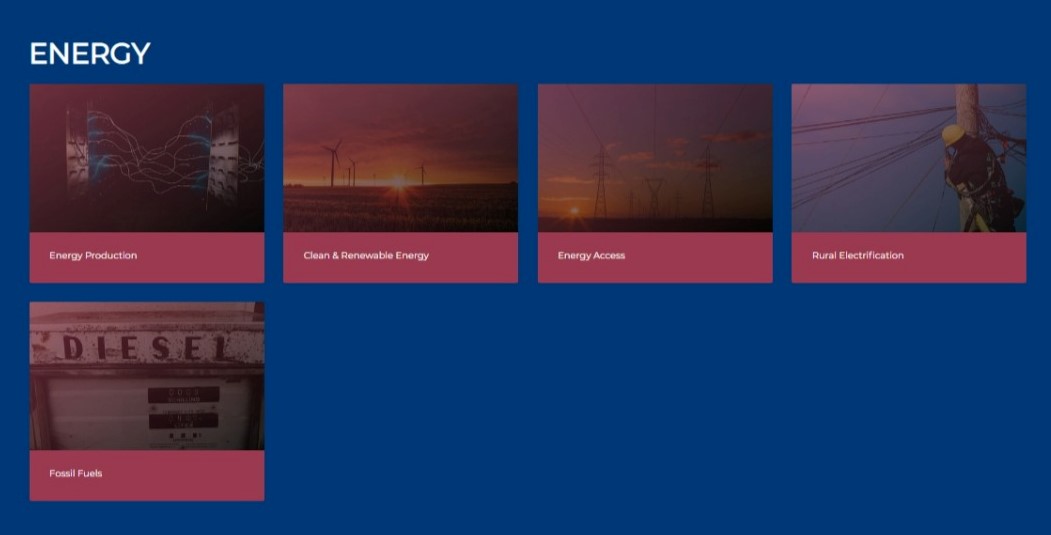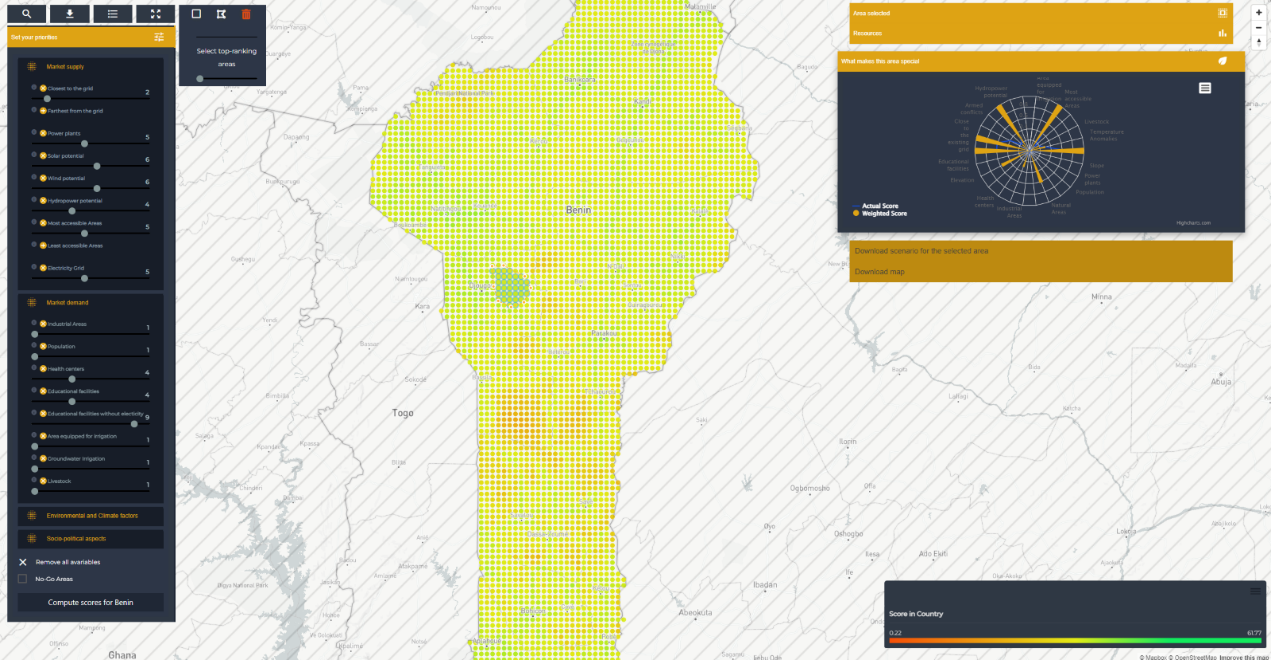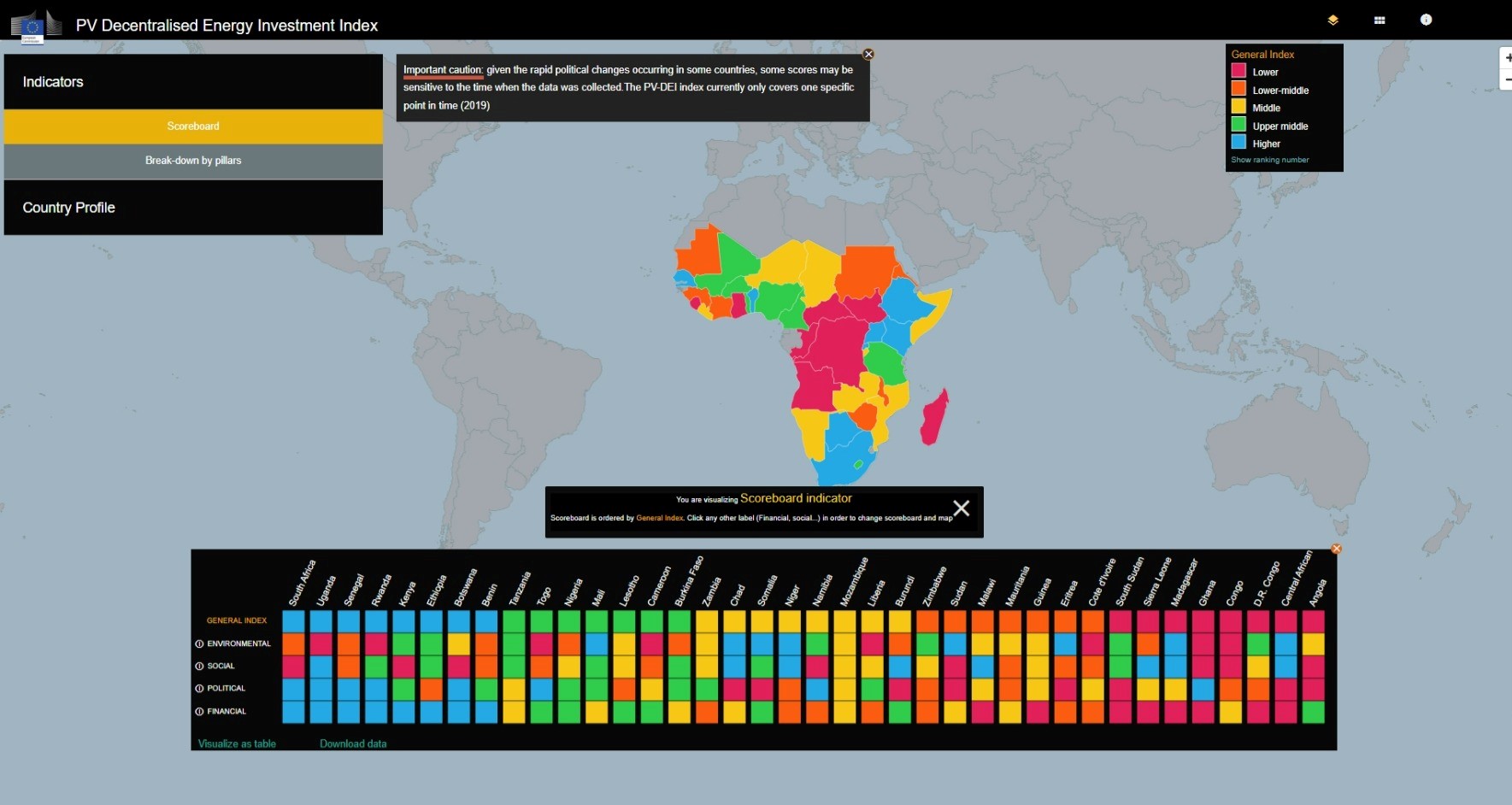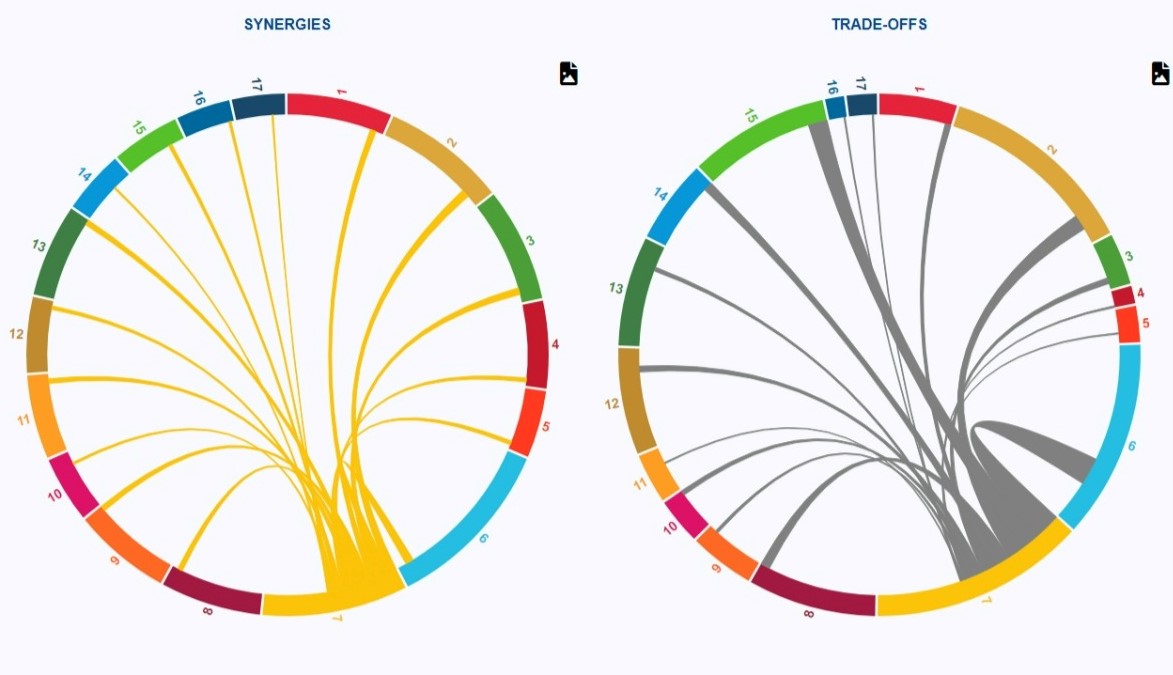Insights on energy
date: 26/04/2023
The Africa Knowledge Platform has a rich portfolio of evidence related to energy issues in Africa. Users can easily access this content either by filtering according to SDG 7 – Affordable and clean energy or by Energy thematic topic.

The AKP includes plenty of energy-related datasets including: data on power plants categorised according to generation type or installed capacity; hydropower plants; solar global horizontal irraditation; and raw materials trade. The environmental risks to planned energy-related infrastructure can be screened using the WWF Risk Filter Suite for the dependencies and impacts on biodiversity and water of specific sectors (e.g. Biodiversity Physical Risk and water-related risk for business).
Three renewable energy-related tools have been developed to guide clean energy investments in Africa:
- The Clean Energy Access Tool (CEAT) is a web tool that provides the geospatial context of decentralised renewables in sub-Saharan Africa. This tool visualises and analyses data on energy needs, population density, and ease of access to the electricity grid. Policymakers, international donors, governments, and philanthropic investors would find this tool useful in prioritising investment in the energy sector.
- The Clean Energy Access Prioritiser tool (in development) is a web-based multi-criteria tool for identifying and selecting priority areas for energy-sector interventions. It weighs more than 30 variables spanning energy demand, environmental conditions and social aspects to update a map in real-time based on custom priorities. A first pilot has been developed for Benin, which showcases fruitful collaboration between an EU Delegation (in this case Benin's), the JRC and the DG for International Partnerships (INTPA). The tool is now in beta version and will soon be available online on the Africa Knowledge Platform.

- The PV Decentralised Energy Investment Index (PV-DEI) helps to tap into the huge energy potential of African countries. According to the Photovoltaic Geographical Information System (PVGIS), the same photovoltaic panel in Africa can produce twice the electricity as one in Central Europe. To unlock this potential, this tool presents 52 indicators to identify the most cost-effective areas in which to invest in decentralised solar energy mini-grids, based on a polycentric energy system.

Energy access is intertwined with several thematic issues from the environmental, socio-economic and political domains. It is unsurprising that SDG 7 involves many synergies and trade-offs with other SDGs, which can be visualised using the SDG interlinkages visualization tool.

The AKP also includes content that reflects the interdisciplinarity of the energy sector:
- The Water-Energy-Food-Ecosystems Nexus (WEFE) is illustrated in a dedicated StoryMap on the Senegal River Basin. This is one of ten WEFE projects identified in the report on “Priorities and Challenges in Transboundary Basins in Africa”.
- A comprehensive analysis of the potential of Floating Photovoltaic (FPV) installations in Africa can be found. It includes electricity production, evaporation savings, and the potential extra hydroelectricity generated by these water savings.
- Strategic corridors for infrastructure development – as described in the StoryMap on Sustainable African Cities – also depend on energy accessibility. The CUSA project focuses on these development corridors throughout the continent.
Last, nuclear power is another option for energy that is presented through the AKP. The African Union is considering nuclear power for some 10 African countries. The European Commission collaborates with African stakeholders on research, innovation and capacity building for the peaceful, secure and responsible uses of nuclear energy. The partners section of the Africa Knowledge Platform includes information on these collaborations with African partners in the context of nuclear safety and security, notably with the African Commission on Nuclear Energy (AFCONE).
